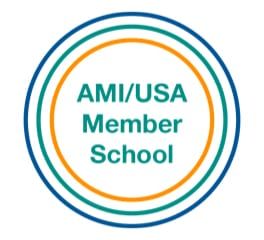Liberated Parenting Course: Week 1
Thank you all for a wonderful beginning to our Liberated Parenting course! We are truly grateful and inspired by your open hearts and your commitment.
Coming Up in Week 2: Understanding the Child in the First Plane of Development
This week, we will dive into a scientific understanding of the child from 3-6, including the Human Tendencies, the Absorbent Mind and the development of Functional Independence.
Please come prepared having read:
What You Should Know About Your Child : Chapters 2 and 3
And having watched:
Video: Don’t Help This Baby
If you’d like to dig in deeper, please enjoy these:
Video: RIE Baby Snack Time
Video: A Window Into the Nido
We are aware that we have much to cover in a short amount of time!
In order to make the most of our time together next week, we will ask that moving forward you submit specific questions into our “Question Box” to allow for everyone to participate in the group discussion. Feel free to jot down questions that come up during the discussion, then submit them as you leave.
Recap of Week 1
That said, we’d like to recap from Week 1 and offer some resources around what came up during our first discussion. In general we noticed parents asking about freedom within limits.
We discussed how allowing feelings isn’t the same as catering to them . (We follow the child, but we do not follow her off a cliff.)
We talk so much about allowing feelings and giving children freedom that parents sometimes interpret this as letting children run the show.
Firm, reliable limits actually help set children free. More below:
We discussed how most of the messages we send to children are unspoken.
In order to send messages like: “It’s okay to make mistakes,” “I love you even when you’re upset,” and “You can do anything you set your mind to,” we have to allow children to live these experiences. We need to create an environment that cultivates exploration, and be the kind of adults who don’t rush in to answer questions, solve problems, or “fix” feelings.
Setting Personal Boundaries
Parents are people, too! Catering to a child’s demands, entertaining children, or having constant power struggles is not “parenting.” It is exhausting and un-sustainable for adults, and does a huge disservice to children. Setting boundaries models consent and creates a healthy relationship between you and your child. Self-Care for Parents !
If you were unable to attend the first session, your books will be waiting for you at the Primary site!
We look forward to picking back up with you next week!
Warmly,
Maggie and Jane
The post Liberated Parenting Course: Week 1 appeared first on Fort Collins Montessori School.






